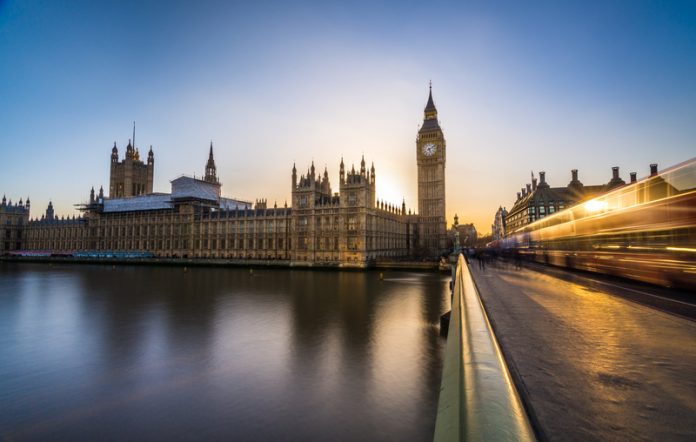A spokesperson for the Office of Government Property (OGP) details the importance of managing the government estate and smart working
The OGP (previously named the Government Property Unit (GPU)) supports the UK government and the wider public sector to manage their estate more efficiently and effectively. In doing this, they help to deliver the finest public services and support the Prime Minister’s priorities by unlocking surplus land and property for growth and housing.
They also create great places for people to work and use our estate to rebalance the UK economy in line with the government’s Industrial Strategy. We interviewed a spokesperson at the Office of Government Property (OGP) to find out more.
Can you explain how the OGP is working hand in hand with the newly launched Government Property Agency?
The OGP is also working hand in hand with the newly launched Government Property Agency to support the government’s transformation agenda, as a key part of our Building a Brilliant Civil Service. OGP also works to strengthen the property expertise across government and acts as the leadership body for the 2,000 members of the Government Property Profession.
Can you tell me how the OGP and how government estate has been transformed and reduced since 2010?
In terms of how the government estate has been transformed and reduced, since 2010 we have:
- Disposed of over 250 properties, raising £2 billion in sales and saved £300 million per annum in running costs.
- Reduced the vacant space within our central estate to only 1.5%, far below the private sector average of 7.5%.
- Delivered our 2020 emissions and paper reduction targets three years early; reducing our carbon emissions by 33% and our paper consumption by 50%.
- We have also worked with 90% of English councils to deliver better integrated, customer-focused services, securing £70 million in capital receipts, £20 million savings in running costs, 5,700 jobs and releasing land for 1,300 homes.
Tell me more about the 2018 Government Estate Strategy and the importance of reducing estate and what the buildings or land could be used for?
This strategy, which is due to be published later this year, will set out how we will use the estate as an enabler to deliver better outcomes for the public during this Parliament, driving our activities.
We will use the power of our estate to help energise the housing market, create supportive infrastructure and release surplus land for house building.
We are continuing to make our property more efficient so that we can release land for at least 160,000 homes and help deliver £5 billion of receipts by 2020.
Reducing the estate will both free up more land from housing but also allow the civil service to harness new technologies to deliver leaner, more accessible public services that are more responsive to citizens’ needs.
What progress has the OGP made so far concerning the more challenging objective of creating an integrated estate?
OGP jointly delivers the One Public Estate (OPE) programme in partnership with the Local Government Association, which facilitates cross-government working between local authorities and central government departments to unlock collaborative, property focused projects across the wider public sector.
One of the core objectives of OPE is to deliver integrated customer-focused services across the public sector through the more efficient use of public sector land. This includes co-locating services, such as Jobcentre Plus offices and local GP centres.
Through OPE, we have already exceeded our aim to deliver 45 co-locations (between local and central government) by 2020, with these partnerships expected to deliver further co-locations in the coming years.
How can using shared working spaces and using cloud technology in these spaces save money, improve collaboration and ensure staff have what they need to work smarter?
In the broader digital economy, workers are less tied to physical offices and work increasingly from home whilst meeting together as necessary in suitably placed facilities.
Shared offices and using cloud technology increases collaborations, supports flexible working practices and make it easier to share ideas and resources.
Smart working increases productivity, reduces estate costs, opens up the workplace to a more diverse workforce, and improves wellbeing and engagement.
What role does technology expected to play in smarter working, such as shared Wi-Fi?
Technology is the driving force behind smarter working, by making it possible for more collaborative working styles and a more dispersed workforce.
Shared Wi-Fi, collaborative working programs such as the OneDrive, SharePoint and google drive and video conferencing all make smarter working possible and allow more a more agile and efficient civil service.
Can you tell me also about the Government Hubs Programme and what this sets out to do?
The Hubs programme draws together departments’ strategic plans and the overall workforce strategy for the Civil Service. We want to create a modern, flexible estate, comparable with the best in the private sector.
Hubs will be shared spaces, showcasing best practice and delivering modern, fit for purpose accommodation across the whole of the UK.
Is there anything you would like to add?
The Government Property Agency (GPA), which launched on 1st April this year, will improve the efficiency and effectiveness of the government estate and generate benefits of between £1.4 billion and £2.4 billion over the next ten years. GPA’s initial portfolio of 80 properties will grow to over 1,000 as it takes on increasing responsibility for managing the general purpose central government estate.
Spokesperson
Office of Government Property (OGP)
ogpsecretariat@cabinetoffice.gov.uk
https://www.gov.uk/government/groups/government-property-unit-gpu




![Europe’s housing crisis: A fundamental social right under pressure Run-down appartment building in southeast Europe set before a moody evening sky. High dynamic range photo. Please see my related collections... [url=search/lightbox/7431206][img]http://i161.photobucket.com/albums/t218/dave9296/Lightbox_Vetta.jpg[/img][/url]](https://www.openaccessgovernment.org/wp-content/uploads/2025/04/iStock-108309610-218x150.jpg)






